In BC, the legal limit for blood-alcohol concentration when driving is set at under 50 mg or 0.05% gram per 100 ml of blood, which roughly equals the alcohol content of two bottles of beer.
Before we get into the technicalities of how much alcohol is permitted while driving, please remember that the objective of this post is only for information purposes. It shouldn’t be considered an endorsement to drink a certain quantity and drive. We do not urge anyone to drive with any amount of alcohol in their blood.
Even if you only consume the legal quantity of alcohol, we strongly suggest you use a taxi, Uber, or designated driver services.
It’s also advisable to stay up to date on drink-drive rules by visiting the official province of BC website.
What is the Legal Alcohol Limit for Driving in BC?
In British Columbia, the legal alcohol limits for drivers are set to ensure the safety of all road users. These limits are strictly enforced to reduce the risk of impaired driving incidents. Here’s a breakdown of the legal alcohol limits based on the driver’s age and status:
- Regular Drivers: The legal limit is set at 0.05% Blood Alcohol Concentration (BAC). This limit applies to the majority of drivers, including those with full-privilege licenses.
- Drivers Under 19: It is illegal for young drivers, or anyone under the age of 19, to operate a vehicle with any detectable amount of alcohol in their system. This zero-tolerance policy aims to protect young and inexperienced drivers from the risks associated with alcohol consumption and driving.
Drink and Drive Penalties and Punishments in BC
Driving under the influence of alcohol or drugs is a serious offense in British Columbia and is one of the leading causes of road fatalities. The law enforcement agencies in BC are equipped and trained to detect drivers impaired by alcohol and drugs, utilizing measures such as driving prohibitions and license suspensions to remove such drivers from the roads.
For more detailed information on each type of prohibition and suspension, as well as the most current updates on laws and penalties, it’s important to frequently visit the official state website.
Penalties and Punishments Overview:
12-Hour Licence Suspensions for Graduated Licensing Program Participants
- This applies exclusively to drivers in the Graduated Licensing Program detected with alcohol, THC, or cocaine in their system.
- Immediate licence surrender is required, with a prohibition to drive until the suspension concludes and the licence is reclaimed.
- Consequences include a reset of the 24-month (N) licensing period or reattempting all tests for learners (L).
- Additional prohibitions may be applied by RoadSafetyBC based on the driving record.
24-Hour Driving Prohibitions
- Issued for drivers believed to be impaired by alcohol or drugs.
- Licence surrender and prohibition start immediately upon notice.
- Record of the prohibition is permanent and may influence further sanctions.
- Vehicle impoundment for 24 hours is possible, with all associated costs borne by the driver.
Driving Prohibitions – 3-, 7-, 30- and 90-Day
- Based on breath sample results: warnings for BAC levels not less than 0.05 result in varying lengths of driving prohibition.
- Immediate licence confiscation with prohibition starting instantly.
- Vehicle impoundment for longer prohibitions, mandatory participation in remedial programs for repeated offenses.
90-Day Administrative Driving Prohibitions
- For drivers with BAC ≥ 0.08, or those impaired by drugs as determined by a drug recognition expert.
- Evaluation methods include physical and observational tests to determine impairment.
- Criminal charges may apply, leading to court appearances and potential criminal conviction driving prohibitions.
Immediate Roadside Prohibition Penalties
- Varying lengths of driving prohibition and vehicle impoundment based on the offense number and BAC level.
- Additional administrative penalties and fees, including licence reinstatement fees.
Driving Prohibition on a Criminal Conviction
- Criminal offenses include driving impaired or with BAC > 0.08, or with a blood-drug concentration at or above prescribed levels.
- Convictions lead to criminal record prohibitions, potential increases in insurance premiums, and other financial penalties.
It’s crucial for drivers in BC to understand these laws and penalties to avoid the severe consequences of impaired driving. Always check the official state website for the most accurate and up-to-date information regarding driving regulations and penalties.
How Can I Calculate If My Alcohol Blood Limit Is Legal in BC?
In British Columbia, police officers use several methods to determine if a driver’s blood alcohol concentration (BAC) exceeds the legal limit. These methods include the use of approved screening devices on the roadside, breathalyzer tests at police stations, and, in some cases, blood tests. These tests are designed to accurately measure the alcohol level in your bloodstream to ensure drivers are within the legal BAC limit of 0.05% for regular drivers and zero tolerance for drivers under 19.
To avoid the risks and penalties associated with driving over the legal alcohol limit, there are reliable methods you can use to estimate your BAC:
- Use a High-Quality Alcohol Breathalyzer: Based on my decade of experience as a phlebotomist, the most accurate breathalyzer available in BC is the BACtrack S80. It offers professional-grade accuracy and is DOT & NHTSA approved, as well as FDA 510(k) cleared. I strongly recommend keeping one of these devices in your car. It’s a common issue that people in BC might not accurately judge their BAC level, leading to impaired driving without realizing it. Having a BACtrack S80 at hand provides a practical way to assess your alcohol level before deciding to drive.
- Utilize a BAC Calculator: I have collaborated with other phlebotomists and web developers to create an online BAC calculator. This tool is based on general factors such as weight, gender, the amount of alcohol consumed, and the timeframe over which it was consumed to estimate your BAC level. While this calculator can give you a general idea of your BAC, it’s important to remember that individual variations such as metabolism, food intake, and specific health conditions can affect accuracy.
Keep in mind that both of these methods cannot guarantee 100% accurate results. However, they are valuable tools that can help you make informed decisions about driving after consuming alcohol. They serve as a preventive measure, potentially stopping you from driving when your BAC is above the legal limit of 0.05%. Always err on the side of caution and if in doubt, choose not to drive.
Ways to Avoid Driving with a High BAC in BC
Driving with a high blood alcohol concentration (BAC) not only poses serious risks to your safety and that of others but also carries significant legal consequences in British Columbia. Fortunately, there are convenient and responsible alternatives to ensure you get home safely without driving under the influence:
- Utilize Ride-Sharing Apps or Local Taxi Services: One of the most straightforward ways to avoid driving after drinking is to use ride-sharing apps like Uber or Lyft. These services offer a convenient and accessible option for safe transportation, directly from your smartphone. Additionally, for those who prefer traditional taxi services, local companies such as MacLure’s Cabs in Vancouver or Bluebird Cabs Ltd. in Victoria provide reliable transportation options. These services are readily available and can be easily accessed through a phone call or their respective apps, ensuring you have a safe ride home at any time.
- Order a Designated Driver Service: If you find yourself having driven to an event and then consumed alcohol, leaving your car behind might not feel like an appealing option. In such cases, designated driver services offer the perfect solution. Services like Get Home Safe Designated Drivers in Vancouver or A Topnotch Designated Driver Service in Victoria send a driver to your location who will then drive you and your car home. This not only ensures your safety but also keeps your vehicle secure. To find a designated driver service in your area, a simple online search for “designated driver service” along with your city’s name will provide you with options.
By planning ahead and choosing alternatives to driving after drinking, you can significantly reduce the risk of impaired driving incidents. Whether opting for a ride-sharing app, a local taxi service, or a designated driver service, there are ample options available to ensure you arrive home safely without compromising your safety or breaking the law. Remember, making responsible choices not only protects you but also everyone else on the road.
Stick to Drink and Drive Laws in BC: Sad Statistics
Driving under the influence of alcohol or drugs significantly increases the risk of fatal accidents on the road, with an average of 65 deaths annually in British Columbia due to drunk driving. Both BC and federal laws are in place to combat this issue, emphasizing that while driving after drinking isn’t outright banned, any impairment from substances is illegal.
It’s crucial for everyone to prioritize safety and avoid endangering lives by choosing not to drive while intoxicated. Alternatives like designated drivers, cabs, public transit, or ride-hailing services offer safe ways to get home without risking lives on the road.
For those who decide to drive, adhering strictly to the legal BAC limits is essential. Checking the most current laws and using reliable breathalyzers can help ensure that driving remains within legal and safe boundaries.

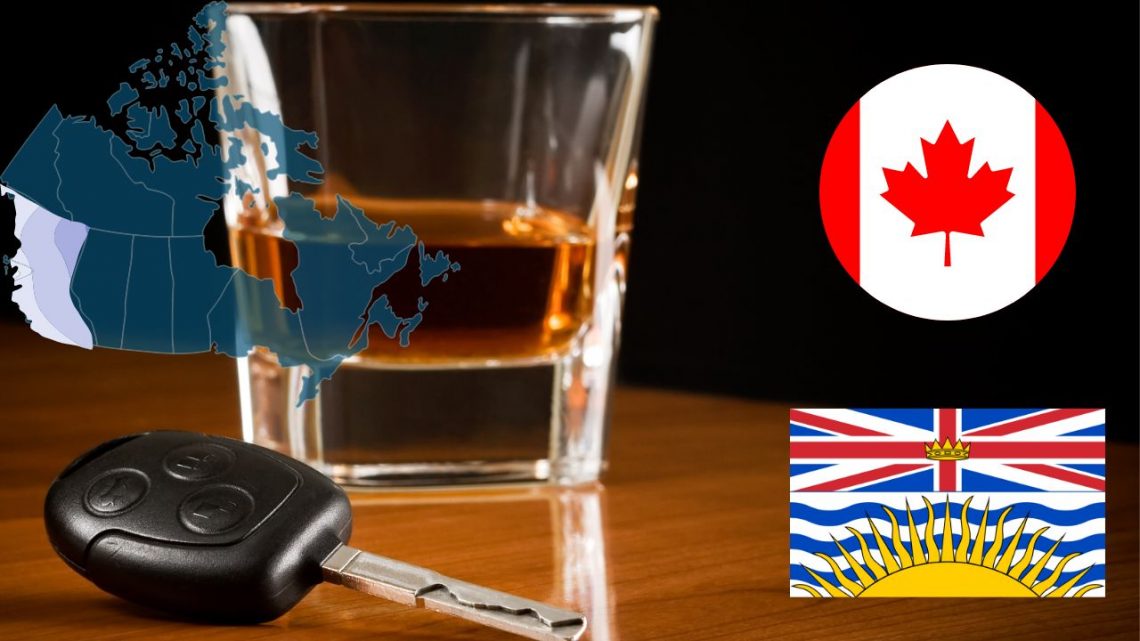
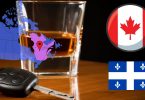
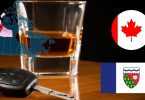
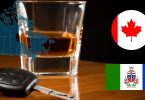
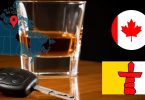
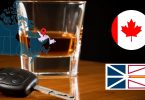
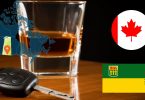
Leave a Comment
You must be logged in to post a comment.